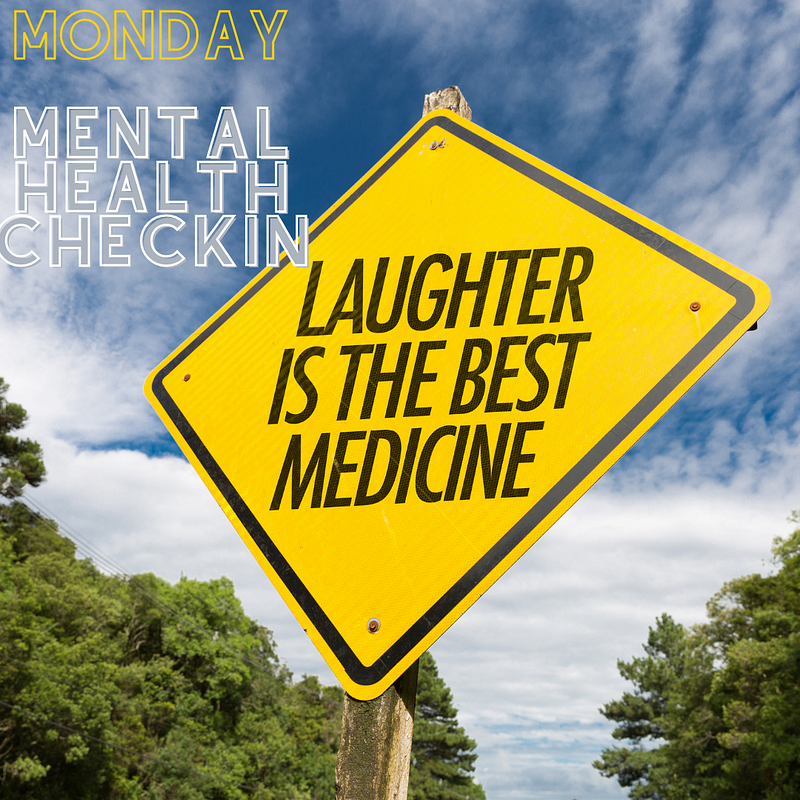# The Healing Power of Laughter: A Path to Emotional Resilience
Written on
Chapter 1: The Role of Laughter in Healing
Laughter can be a powerful escape from life’s challenges. As Viktor Frankl stated, “I would never have made it if I could not have laughed. It lifted me momentarily out of this horrible situation, just enough to make it livable.” This sentiment resonates deeply, especially when reflecting on the importance of humor during tough times. Recently, I attended a day-long comedy festival that was filled with sunshine and laughter, leaving me in stitches with the comedians’ clever takes on life and humanity.
Laughter serves as a crucial coping mechanism for dealing with stress. Frankl's experiences during the Holocaust illustrate how vital humor was for his survival. If you're curious about philosophical perspectives or counseling techniques, I highly recommend checking out his book, Man’s Search for Meaning.
As a former hospital worker, I often encountered children suffering from severe depression. When I would leave their examination rooms, I would remind them, “Don’t watch anything sad!” Fortunately, the available programming was mostly cheerful and uplifting.
What we consume mentally is significant. While I appreciate a good drama, I’ve learned to discern when it's appropriate to engage with more serious content versus when I need a light-hearted episode of The Office. For instance, I make it a point to avoid emotional or sad material before bedtime. (And yes, scary movies are off the table for me, too; I’m a bit of a coward!)
Scientific studies support the notion that laughter has beneficial effects on our well-being. Sophie Scott, a cognitive neuroscience professor at University College London, explains, “When you start to laugh, you get a fairly large contraction in the rib cage — very large and very fast. Those contractions push air — ha, ha, ha. It’s a very primitive way of making noise. At the brain level, it’s associated with a change in the circulating endorphins. This can give you a pain-killing sensation. As you laugh, it lowers your adrenaline levels, and over a longer time frame, your levels of the stress hormone cortisol.” Consequently, laughter can elevate your mood and mitigate your physical and emotional reactions to stress.
I like to think my sense of humor is quite diverse. I enjoy clever and witty jokes, yet there's something undeniably amusing about silly prank videos on YouTube. I find joy in the sharp wit of comedians like John Mulaney and Tig Notaro, but I also can’t help but chuckle at a classic fart joke. (I’m not ashamed; laughter is laughter!)
While I don’t want to diminish your struggles, it’s crucial to acknowledge that your feelings of sadness or depression are valid. Regardless of how challenging life may seem this week, I hope you can discover something that brings you joy.
Today's reflection prompt invites you to ponder: When was the last time you laughed? What types of humor resonate with you? Who is the funniest person you know?
I’m here to support you this week; don’t hesitate to reach out. Wishing you a wonderful week ahead!
Section 1.1: The Science Behind Laughter
Laughter is not just a spontaneous reaction; it has physiological benefits that aid our mental health. Let’s delve into the research.

Subsection 1.1.1: Laughter and Endorphins
Scientific research highlights that laughter leads to the release of endorphins, contributing to a sense of well-being and even pain relief.
Section 1.2: Finding Humor in Daily Life
Integrating humor into your daily routine can enhance your resilience and improve your overall mood.
Chapter 2: Discovering Laughter in Everyday Moments
Laughter Really Is Good Medicine | Duke Health - YouTube: This video explores how laughter contributes to better health and emotional resilience, emphasizing its therapeutic effects.
The Science of Laughter - Sasha Winkler - YouTube: In this video, Sasha Winkler delves into the neurological underpinnings of laughter and its significance in our lives.